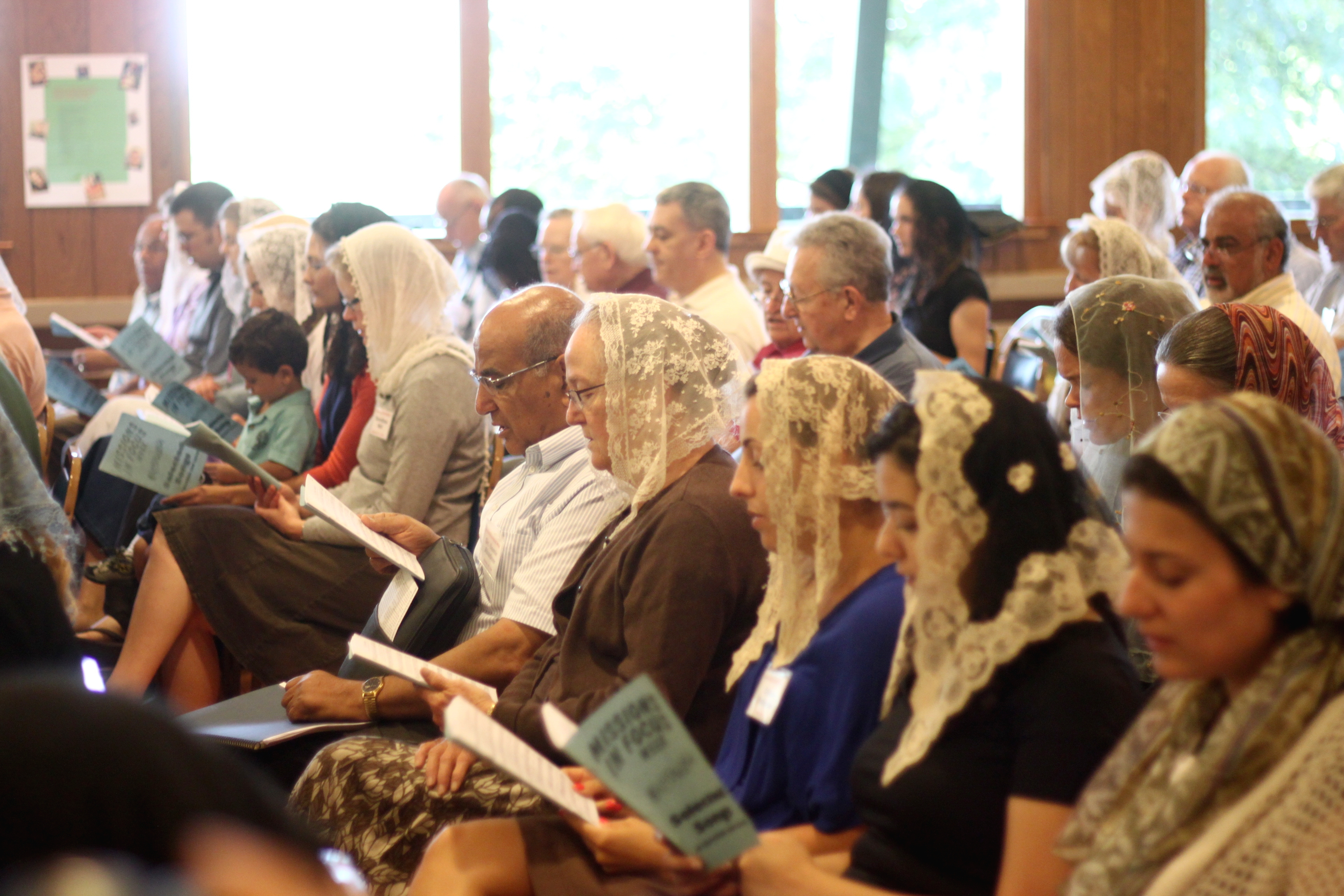Seven Glories Of Christ In Peter’s Discourse in Acts 2

On that remarkable day of Pentecost, God’s Spirit descended from Heaven to fill the twelve apostles (Acts 2:4, 14). They were all “Galilean men,” (1:11; 2:7), except for Judas Iscariot, the only one from Judea, but he was no more. To celebrate this Feast of the LORD, also called “the feast of weeks” (Leviticus 23:15–22; Numbers 28:26; Deuteronomy 16:19), devout Jewish people had come to Jerusalem from many areas of the Roman Empire (vv. 9–11). When they heard the apostles speak in the same languages of the areas they came from, proclaiming the wonderful works of God, they were perplexed (v.12). Peter used this opportunity to explain what had happened. The result was that 3,000 men and women repented and were baptized. This was the birthday of the Church.
Introduction to Peter’s Discourse
The apostle quoted the prophet Joel, and showed certain parallels between Joel’s prophecy and with what had taken place that memorable morning, but without suggesting that this prophecy had been fulfilled on that day, as some think, for its fulfilment is still future. However, in quoting Joel, Peter made an application to address the consciences and hearts of his listeners, “Whoever shall call upon the name of the Lord will be saved.” Then he presented to them in seven powerful points the greatness of the Messiah who had recently been rejected. Let us briefly consider the seven glories of the Lord Jesus that Peter highlighted and that caused many to repent.
(1) “Approved of God”—Christ was the only One Approved
“Men of Israel, hear these words: Jesus the Nazaraean, a man borne witness to by God to you by works of power and wonders and signs, which God wrought by Him in your midst, as yourselves know” (Acts 2:22). Who can ever be compared with Christ as a perfect Man on this earth? Perhaps the closest parallel is Joseph (Genesis 37–45) but he was not perfect, whereas the Lord Jesus was approved by God. He had confirmed this during Christ’s public ministry by giving Him to work powers (or miracles) or wonders (drawing people’s attention) and signs (signifying a message to the people). The Holy Spirit used the verb to approve, attest, bear witness to (Gr. apodeiknumi) of Christ, the Messiah. Peter explained in his discourse that the Lord Jesus was indeed God’s Messiah, who had been publicly approved by God on many occasions. The same verb is used with respect to the coming Antichrist—the counterfeit Messiah—who will present (show, approve) himself “as god” (2 Thessalonians 2:4, 9) through signs, miracles and wonders of falsehood, so that people will accept him (v. 9). Peter’s fourth key-term emphasized that God had wrought a work through Christ (Acts 2:22), in contrast to activities of falsehood wrought by Satan, but allowed in God’s government (2 Thessalonians 2:9, 11). Sadly, the Jewish leaders had not accepted God’s assessment and testimony of the true Messiah and His activities.
God’s Approved One was Rejected by His People
The process of Christ’s rejection by His people is described in the Gospels. His authority was obvious to everyone (Matthew 7:29) and confirmed by His Messianic miracles, in fulfillment of many Scriptures. When the Jewish leaders started to investigate (Luke 5:17–26) they did not respond positively to His ministry (see Matthew 11:19–24). On several occasions the Lord Jesus showed by those miracles that He was the Messiah: (1) the healing of a leper; (2) the healing a man who was born blind; and especially (3) the healing of one who was (a) mute, (b) demon-possessed, and (c) blind. At this point, the multitudes were convinced that Jesus was the “Son of David,” but then the Jewish leaders ascribed this healing to Beelzebub or Satan. In doing so they brought God’s judgment on them, being guilty of rendering false witness. The Lord confirmed to them that their sin was the blasphemy of the Holy Spirit that cannot be forgiven (Matthew 12:22–32). At this point the Lord had to turn away from them, after having confirmed that He only recognized as His true relatives (brothers, sisters, mother) those who were doing God’s will (12:49–50). The Lord Jesus never disregarded God’s law given through Moses, for He had come to fulfil it. However, He disagreed with the rabbinical interpretations, replacing God’s words by man’s sayings. Rejected by these leaders, Christ was now free to open the door for the Gentiles—something predicted long before (Isaiah 49:6; Luke 2:32). Acts describes this development after His death and resurrection, but the change of dispensations is indicated in various ways throughout Matthew’s Gospel, prefigured by the Lord leaving the house and sitting down at the sea-shore (Matthew 13:1).
The Messiah’s Rejection Opened Wide the Door of Grace
With the word “behold” (Matthew 13:3; cf. Isaiah 42:1; 52:13) Matthew draws attention to the Servant, the Messiah, but also to the fact that the Jewish people rejected their own Messiah, even though He was “approved of God.” This word “behold” draws all ears, eyes and hearts to the Sower and the work He was doing—and is doing today—in and through His disciples who hear and do His word, and which He will be doing in the future. Paul referred to this work when writing, “coming, He has preached the glad tidings of peace to you who were afar off, and the glad tidings of peace to those who were nigh” (Ephesians 2:17). Obviously, since He has gone to heaven, Christ now preaches through the vessels of His choosing: Paul and many others in past, present, and future. Several parables in Matthew 13 and 24–25 signify such a new work, after Christ had to distance Himself from those who rejected Him (Matthew 12; 23). This new work of God’s grace actually began after Christ’s death, resurrection, and exaltation, and is recorded in Acts.
(2) “Delivered by God”—According to God’s Predetermined Plan
“Him, given up by the determinate counsel and foreknowledge of God” (v. 23a). On many occasions the Jewish leaders had tried to kill the Lord Jesus, but they never succeeded because His hour had not yet come (cf. Mark 14:49). It is amazing to see, once this hour had come, how many prophecies were fulfilled in a short period of time. Then the determinate counsel of God was to be accomplished, according to His foreknowledge—for He had planned it this way (1 Peter 1:20; Romans 8:29; 11:2; Acts 26:5). This is why the Lord did certain things, for instance in John 19:28, “that the Scriptures might be fulfilled.” God’s counsel implies that His plan (purpose, intention, decision) is determined and fixed, meaning that it cannot be changed (Hebrews 6:17). With our limited minds we cannot understand how God’s counsel can be harmonized with man’s brutal rejection and crucifixion of our Lord Jesus Christ. Scripture always maintains man’s responsibility, while showing God’s ultimate control. “The LORD has made everything for its own purpose, even the wicked for the day of evil” (Proverbs 16:4 NASB). Being enemies of God—without realizing this, as the case of Saul of Tarsus proved—these wicked men opposed their own Messiah, yet they fulfilled God’s plans! However, His sovereignty never sets aside human responsibility.
(3) Crucified by Man—Jews and Gentiles Both Guilty of His Rejection
“Ye, by the hand of lawless men, have crucified and slain” (v. 23b). With this statement, Peter put the burden of guilt upon his Jewish audience, without saying that the Romans were without guilt. The Jews Peter addressed were responsible as being part of the nation that had rejected their own Messiah. In Matthew 12, the Lord had accused these leaders that they were guilty of the blasphemy against the Holy Spirit, which could not be forgiven to that generation. The only way out, still open to all individuals among the guilty nation, was to repent so that God would consider their national guilt as “man-slaughter” once they accepted God’s “city of refuge.” The following points should be understood: The nation was guilty of premeditated murder and thus under the penalty of death, but God accounted their action as a mistake done in ignorance. Why? Because on the cross the Lord Jesus had prayed, “Father, forgive them for they do not know what they are doing” (Luke 23:34). On the basis of this prayer, God treated His people as having acted in ignorance (1 Corinthians 2:8). For this reason, as recorded in the beginning of Acts, He gave them another opportunity to accept their Messiah whom they had rejected on earth, but who was now risen from among the dead and exalted in heaven. Christ addressed them from heaven by His apostles and through His Spirit, as He had earlier spoken to them on earth. Unfortunately, this testimony was rejected as well, for they killed His special messenger, Stephen (Acts 7).
(4) Resurrected by God—As Risen, Christ became Head of a New Order
“Whom God has raised up, having loosed the pains of death, inasmuch as it was not possible that he should be held by its power” (v. 24). The Prince of life could not be held by the referred to King David as power of death. Peter follows, “Being therefore a prophet, and knowing that God had sworn to him with an oath, of the fruit of his loins to set upon his throne; he, seeing it before, spoke concerning the resurrection of the Christ, that neither has He been left in Hades nor his flesh seen corruption” (vv. 30–31). Then the apostle went on to say, “This Jesus has God raised up, whereof all we are witnesses” (v. 32). This last point had been predicted by the Lord before (John 15:27) and confirmed by Him after His resurrection (Luke 24:48). Who can fathom the greatness of God’s power that was manifested in Christ’s resurrection, a power even greater than God’s might displayed in creation! Ephesians 1:19–20 uses four or five different words to describe God’s strength manifested in Christ’s resurrection. Today, this supreme, magnificent power and energy are at work in the sinner who comes to believe (Ephesians 2:1–10). Praise God! Christ’s resurrection was not of the same order as the resurrection of those who had been brought back to life until then. Although there are six cases (three in the OT and three during Christ’s public ministry) that illustrate the principle of resurrection, yet in actual fact, these persons only were brought back to this life, to die again later. They had been in the “river of death” and came back to this side, whereas our Lord Jesus crossed that river and rose on the other side, in the “land of the living.” The ark of God crossing the Jordan River (Joshua 3–4) illustrated this. The New Testament teaches that a true Christian is identified with the risen and exalted Christ (Colossians 2:12b; 3:1).
(5) Exalted by God—Christ is now a Man Glorified in Heaven
“Having therefore been exalted by the right hand of God…” (Acts 2:33a). Exalted means to be lifted up (5:31). Christ’s moral elevation was on earth, especially in relation to the cross (John 3:14; 8:28; 12:32), whereas God’s action to exalt the rejected One in heaven, publicly proved His full satisfaction. Peter mentioned this in his address with points backed up by many Scriptures:
- Christ was exalted by God, who made Him to sit down (Philippians 2:9; Ephesians 1:20). This is confirmed in many Scripture passages, especially in Hebrews and also in 1 Peter 3:22.
- Christ ascended (John 20:17) and set Himself at God’s right hand (Mark 16:19b; Hebrews 1:3). Who else could fill that place? “We see Jesus…crowned with glory and honour” (Hebrews 2:9), expresses the Christians’ prerogative as being identified with the risen Lord and with the exalted Christ (Philippians 3:8–14; Hebrews 1:9).
(6) Anointed with the Holy Spirit and Linked with His Companions
“Having received of the Father the promise of the Holy Spirit, He has poured out this which ye behold and hear” (Acts 2:33b). Compare this with Hebrews 1:9, “Thou hast loved righteousness and hast hated lawlessness; therefore God, thy God, has anointed thee with oil of gladness above thy companions.” Seen from God’s viewpoint, this anointing in heaven has been poured out upon His companions, who are also called “holy brethren, partakers of the heavenly calling” (Hebrews 3:1). Acts 2:2–4 describes events that people saw and heard in Jerusalem, which things took place because of the Lord’s anointing in the glory and the subsequent outpouring of the Spirit upon the believers. All this demonstrated that Christ, in His exalted position, is closely associated with this new company formed on the day of Pentecost (cf. John 7:39; 1 Corinthians 12:13). These companions represent Christ’s new testimony on earth that will continue until the Rapture (1 Thessalonians 4:16–18). The name Christ means anointed and the believers are placed under His unction.
(7) God Made Him “Lord and Christ”
“For David has not ascended into the heavens, but he says himself, The Lord said unto my Lord, Sit at my right hand until I have put Thine enemies to be the footstool of Thy feet. Let the whole house of Israel therefore know assuredly that God has made Him, this Jesus whom ye have crucified, both Lord and Christ” (Acts 2:34–36). Who can fathom the greatness of our Lord Jesus Christ? One day, every knee shall bow before Him (Philippians 2:10), but Christians may do this now in thanksgiving and adoration, rejoicing in Him who is our Beloved. As Lord He has authority to rule and administer, linked with the kingdom of God, a theme often found in Acts. As Christ, He became the Head of the Church on that memorable day Peter was speaking.
A Few Details Concerning Psalm 110
Psalm 110 is a well-known passage from which the Lord quoted in His dealings with the Jewish leaders during His earthly ministry. He asked them the question: Of whom David was speaking when he said, “The LORD said to my Lord, ‘Sit at My right hand’”? Yahweh (the eternal “I Am who I Am,” Exodus 3:14) is indicated by the first name “the LORD,” as well as by the second name “my Lord” (Adonai) which is a reference to the Messiah (the God-Man). Consider the accuracy of the Hebrew text: The name “Adonai” indicates God’s rights as Sovereign or Master and is used in the plural, in accord with the divine Trinity, as further made known in the New Testament. Just as with Elohim in Genesis 1:1 (“God” in the plural; the verb “created” in the singular), David used a similar concept in Psalm 110:1. The divine Trinity—though not yet revealed in the Old Testament, is nevertheless a reality that was implied already in the text of Genesis 1:1. The same concept, although in a different way, is indicated by Psalm 110. David specified that the LORD (Jehovah, Yahweh) spoke to his, David’s, “Adoni,” which means “my Lord/Master” in the singular. David referred to the Lord Jesus as a Member of the holy Trinity, but in a “veiled” way, as with other Old Testament references to the divine Trinity, existing from eternity to eternity but not yet revealed. Only when “the Word became flesh” (John 1:14), God was manifested (1 Timothy 3:16). The aspects of God’s magnificent Person are unfathomable for human beings: the divine Trinity (One-in-Three and Three-in-One), as well as the mystery of the Lord’s Person, who is God and Man in One blessed Person.
The Results of Peter’s Address
Peter’s message, sustained by the other apostles (see Acts 2:14), had a profound effect, as Luke recorded. “Now when they heard this, they were cut to the heart, and said to Peter and the rest of the apostles, ‘Men and brethren, what shall we do?’ Then Peter said to them, ‘Repent, and let everyone of you be baptized in the name of Jesus Christ for the remission of sins; and you shall receive the gift of the Holy Spirit. For the promise is to you and to your children, and to all who are afar off, as many as the Lord our God will call.’ And with many other words he testified and exhorted them, saying, ‘Be saved from this perverse generation’” (2:37–40). This last statement implies the existence of a believing remnant among the Jewish people, as found in Zechariah’s prophecies, marked by true repentance (12:10; 13:6–9). This prophecy was fulfilled after Peter had spoken, for “they were cut to the heart” (2:37) as they realized their guilt of having pierced their own Messiah. And it will be fulfilled in a future day when the nation will repent (Matthew 23:39). Morally, this concept was a reality with the Jews who repented on the day of Pentecost. Review the context: God had been revealed in the Lord Jesus and in His mission; when the Jews rejected their Messiah, they rejected their own God! What a solemn discovery was made by the ones who had listened to Peter’s message: Like sharp arrows, his words penetrated their hearts! May this same God touch the heart of each one who is not yet saved and may He who knows the hearts (Acts 1:24) also search the hearts of the believers who read this text, and expose them, resulting in self-judgment, confession, and true devotion to Him!





